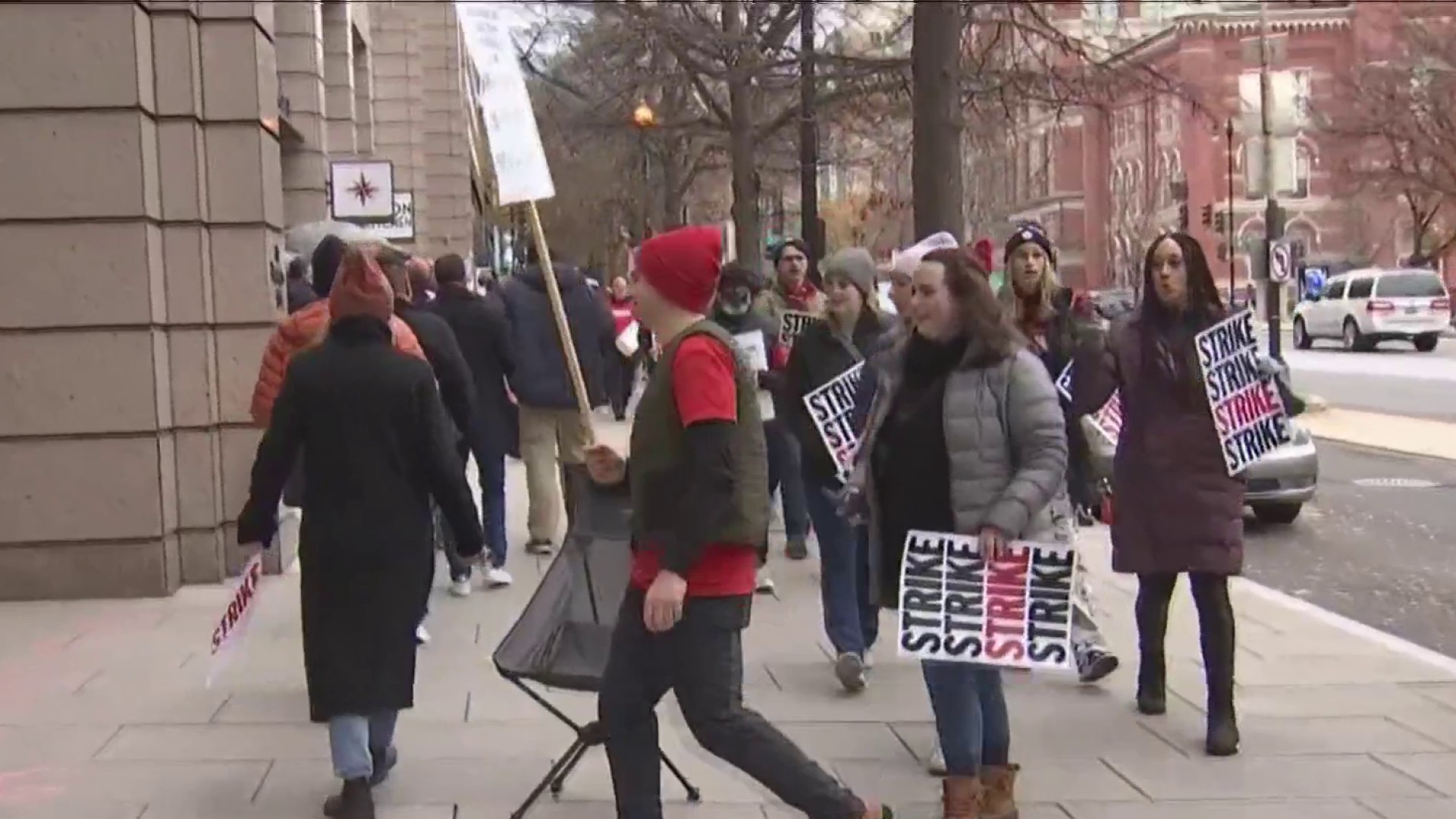After chronicling everyday life in the D.C. area for nearly two decades, John Kelly wrote his last column for The Washington Post last week.
News4 spoke with Kelly about his 34-year career at the Post, why he says D.C. is a “proud town” and why he wrote about squirrels so often.
Kelly is a rock ‘n’ roll drummer in The Airport 77s by night but is best known for his day job as a Post writer. He was 26 when he started writing for the Post Weekend section in 1989. He spent nine years writing for the section and created the section for young people called KidsPost.
“I thought, oh, man. I went to Harvard for this?” he said.
We're making it easier for you to find stories that matter with our new newsletter — The 4Front. Sign up here and get news that is important for you to your inbox.
Kelly started KidsPost in 2000, ran it for three or four years, and came to love it, he said.
“It's actually really hard to make a complex story understandable to a 10-year-old,” he said.
He began writing his daily column, John Kelly’s Washington, in 2004 after Bob Levey retired. Levey wrote the column for almost 30 years. But the column dates back to 1947, when it was first written by Bill Gold.
“The paper thought a daily human-interest column would help connect with readers,” Kelly said.
The column ran in the A section and was an immediate hit.
“Readers loved it – all these little bits about the streetcar and pets and Children's Hospital,” he said.
'I love the passions and the enthusiasms that people have'
Over the past two decades, Kelly has penned more than 4,000 columns about local Washington – the weird, the quirky, the mundane and, yes, the squirrels.
“Discovery does really well with Shark Week, and you’re much more likely to see a squirrel than see a shark. So, I started devoting a week every spring to squirrels and did that every spring since 2011,” he said.
“I love the passions and the enthusiasms that people have about anything, whether it's squirrels or D.C. history or local music, some bit of local trivia. Those are the things I like exploring and sharing,” he said.
Kelly recently joined other Post writers in a one-day strike, and he’s among several other Post writers to take a buyout. Courtland Milloy, another longtime voice of the paper, is among those leaving.
“I don't feel like I'm being pushed out,” Kelly said. “It does sadden me that a lot of people are taking the buyout, and especially older people who, as you say, have a lot of institutional memory, and a lot of people who are in the Metro section. The way the buyouts were structured, it seemed heavily towards local news coverage.”
“My hope is the Post will continue to be the preeminent local news machine that it is,” he said.
As for what’s next, Kelly said he’ll turn to his band, books he wants to read and movies he wants to watch.
“I will think about, are there things, projects I want to do, writing that [is] longer than 800 words every day, five days a week?” he said. “[…] So, I'm looking forward to what comes next, but I don't know what it is.”
So, what does one learn from writing about his hometown five days a week for 20 years?
“We are a small town, in a way, and we’re a proud town. And I mean that to include Washington but also Silver Spring and Vienna and Bowie and Arlington and, you know, the whole area,” Kelly said.
“Washington is as much a town of regular people who have great affection for where they grew up as any other place in the country,” he said.
News4 asked the Post about the future of Kelly’s and Milloy’s columns. They said in a statement: “We are immensely grateful to Courtland Milloy and John Kelly for their work chronicling this community, its changes and its challenges through the years. Their reporting helped create an ongoing dialogue with our readers that we are committed to maintaining, whether through columns or other formats that deepen our engagement with the Washington region.”




